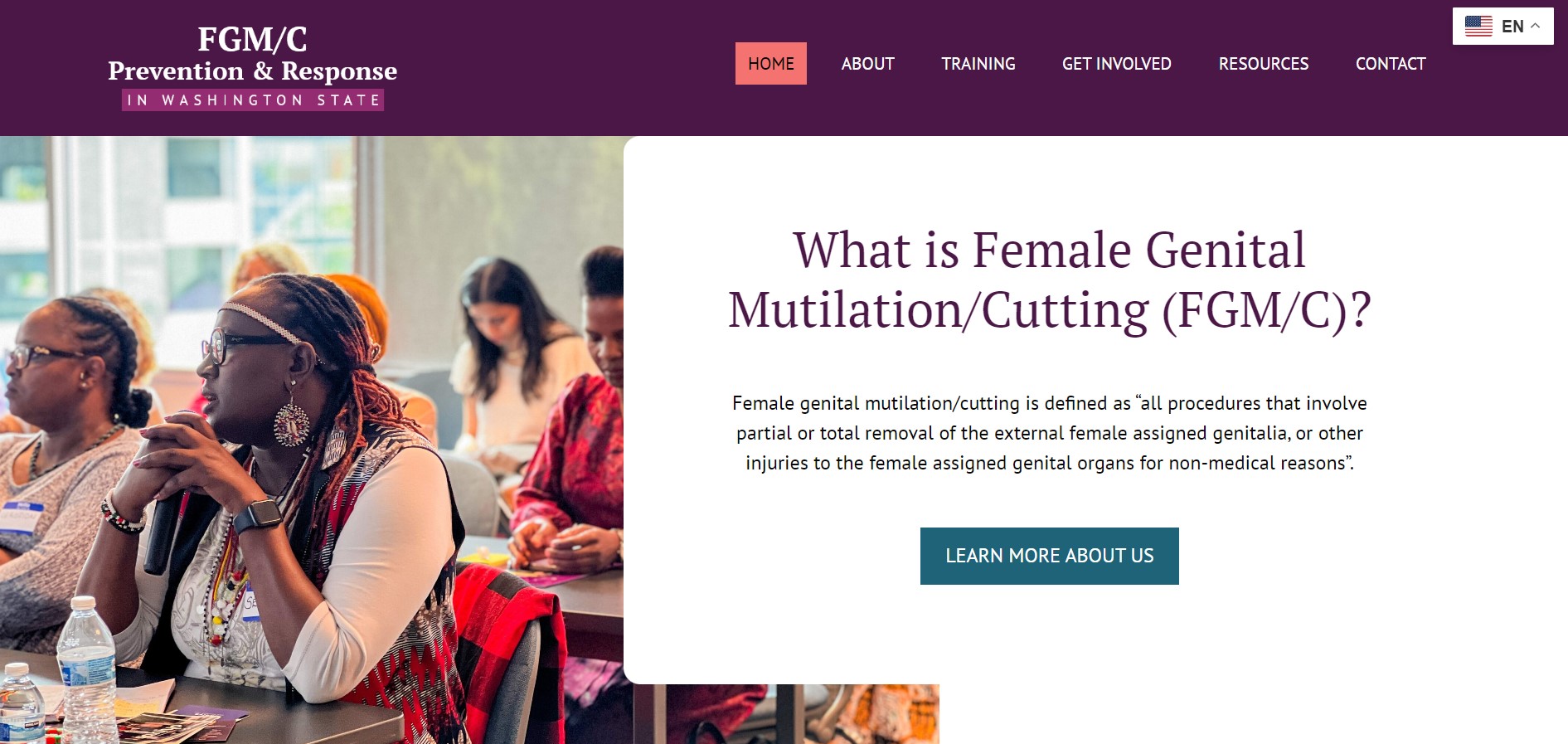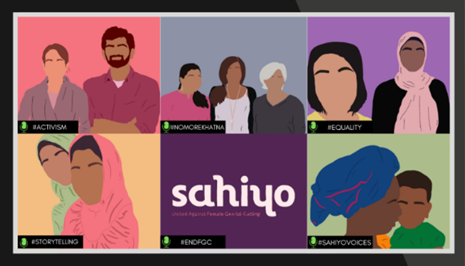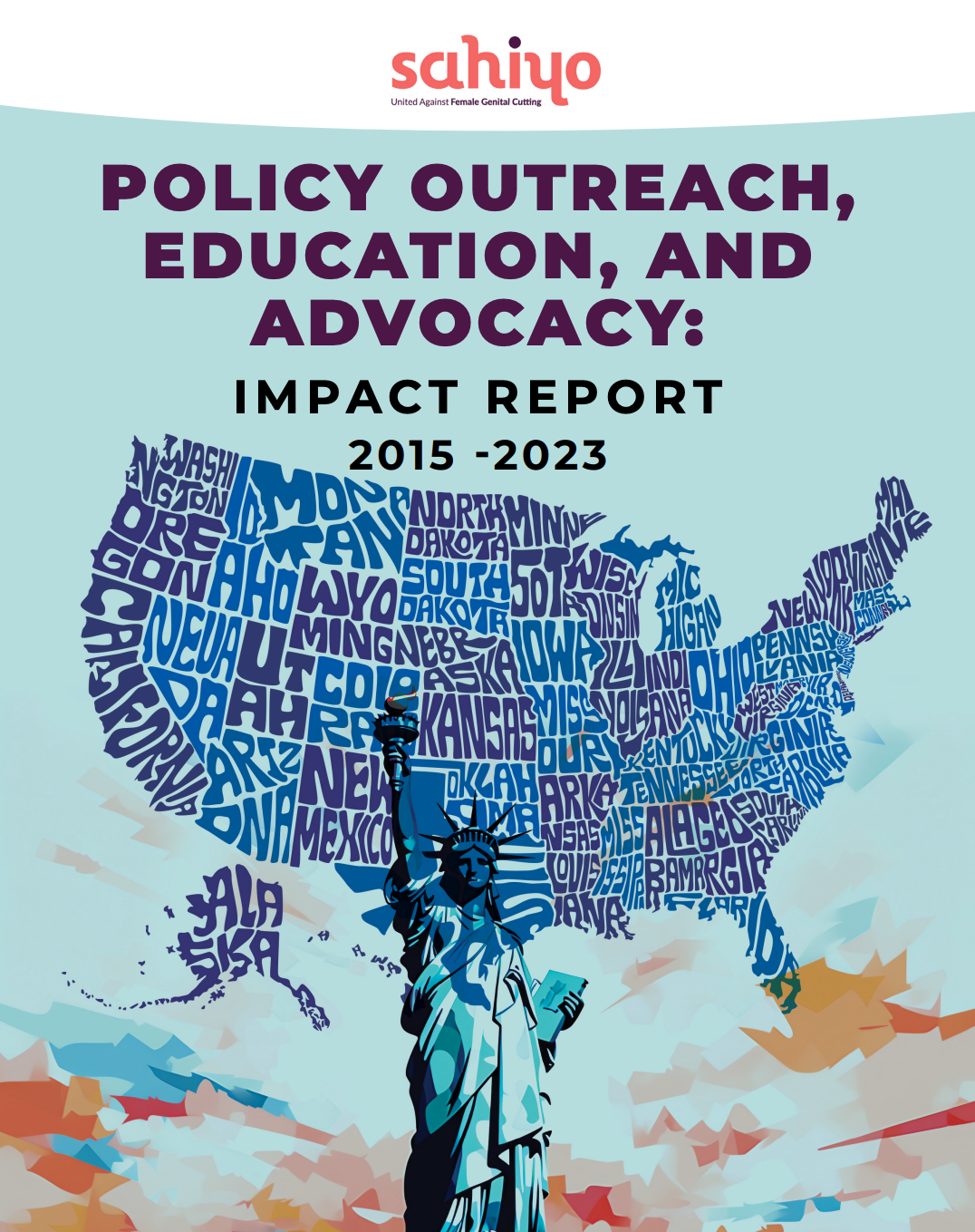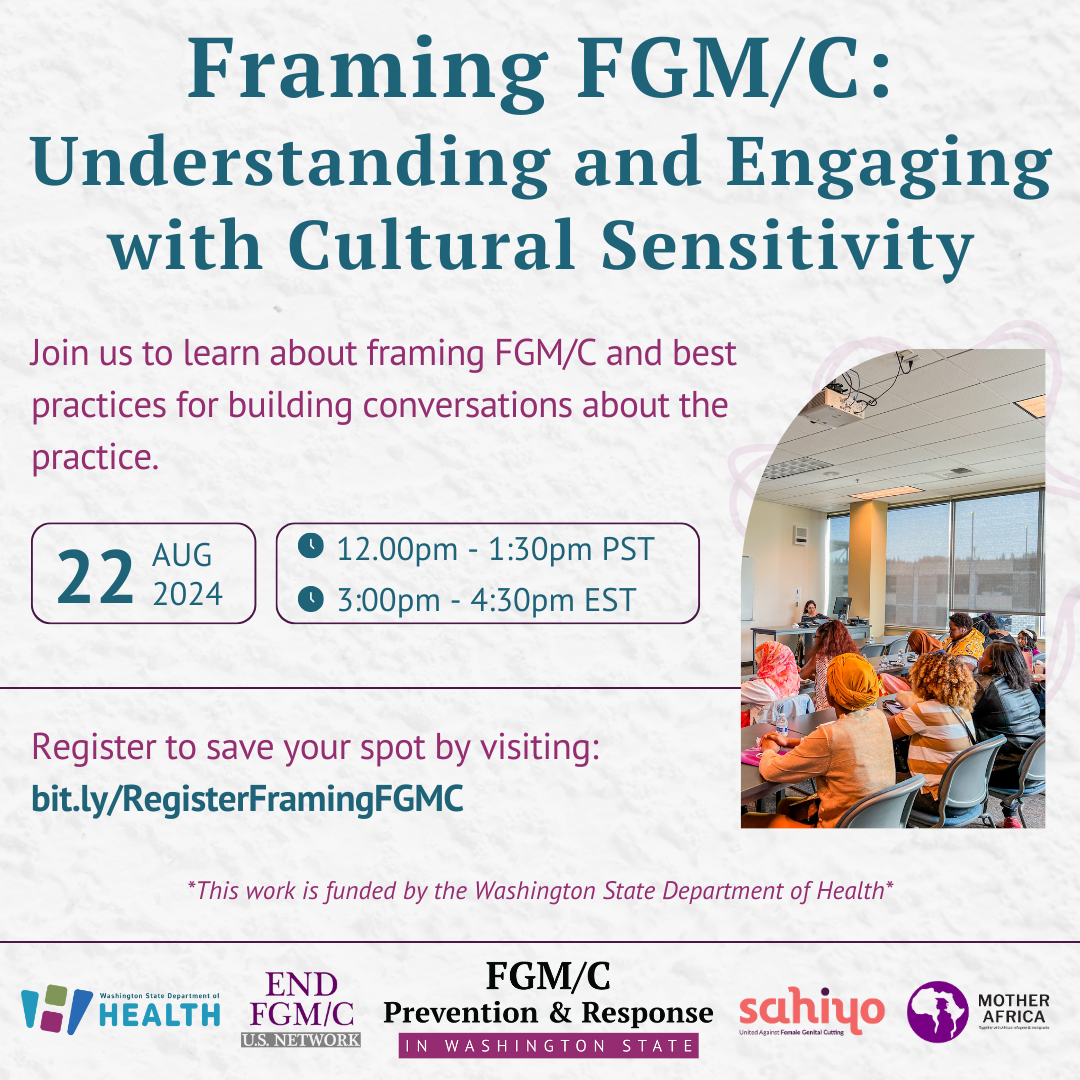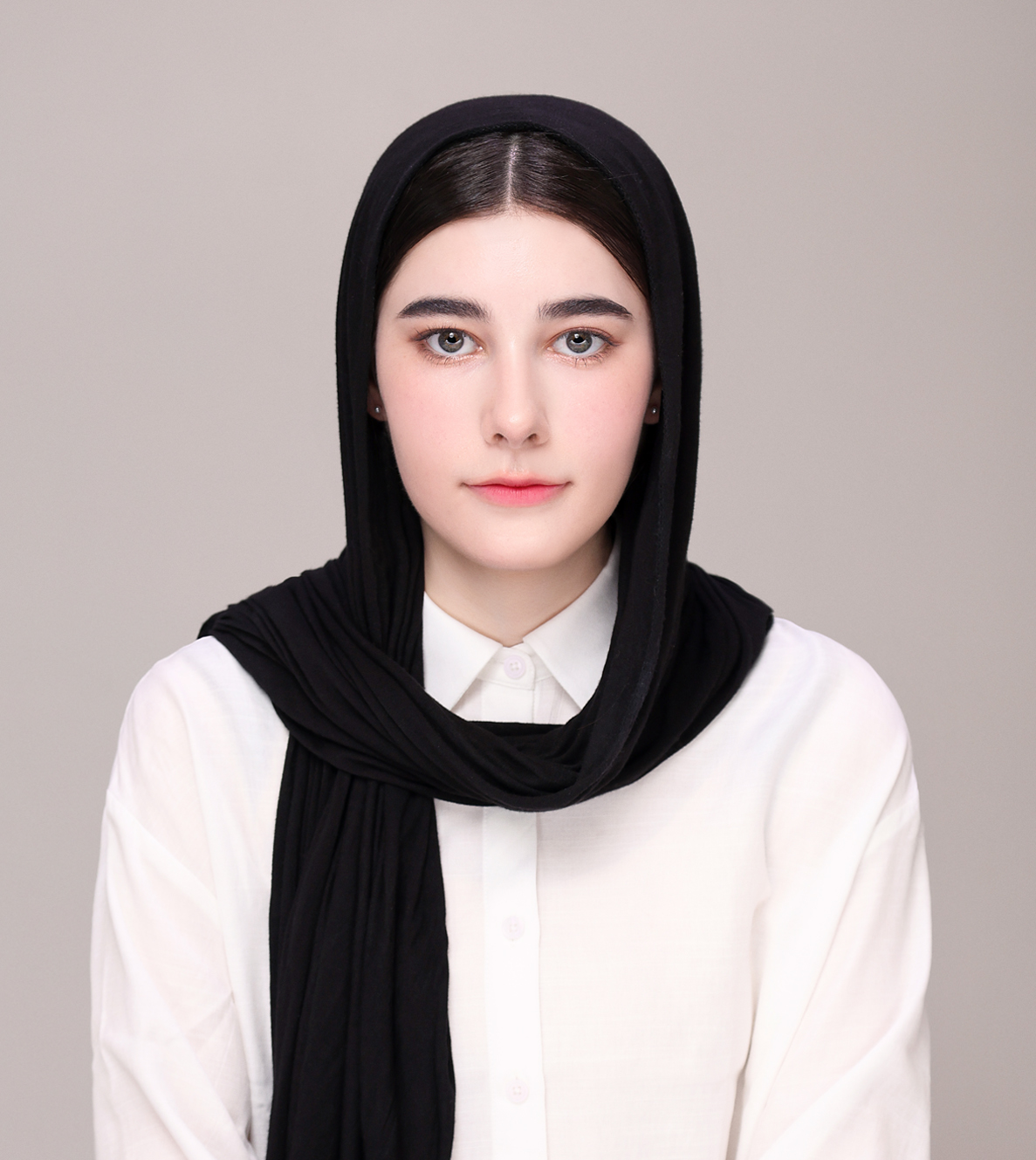By: Juliet Shires
Policy interns at Sahiyo have been interviewing members of the Connecticut (CT) Coalition to End FGM/C to learn more about them and their important work. Recently, Sahiyo’s policy intern, Juliet Shires, talked to the Executive Director of the U.S End FGM/C Network and CT Coalition member, Caitlin LeMay, about her personal experiences as an advocate as well as the Network’s role in supporting the CT Coalition’s efforts.
Misconceptions Around FGM/C
Caitlin LeMay initially echoed the same belief that is found amongst many Americans, particularly those who identify as white, that FGC is only a practice that takes place in African, Asian countries, or basically anywhere but here.
“I’m surprised I wasn’t more familiar with it earlier…I think that it really speaks to what it’s like being raised in the US and the misconceptions around how FGM/C is not seen as an issue here. I was susceptible to those same misconceptions and miseducation about FGM/C and its impact in the United States. I think because of that…it fuels me even more to spread awareness and spread education about FGM/C [in the US]…I’ve really found a home here and a lot of passion for this work.”.
Caitlin continued to expand on these common misconceptions surrounding FGM/C, making it clear that it is very much a practice that affects the U.S. In fact, American doctors used to perform FGM/C to treat perceived ailments such as “lesbianism”, masturbation, and hysteria. She points out that the first step to ending this practice is recognizing that these problems exist within the U.S.
“The United States has a long history, and present…of practicing FGM/C in our medical institutions as a regular practice. And we are yet to reconcile with that… [It was an] institutionalized practice to control women and their bodies and their behavior.”
These racial stereotypes only serve to perpetuate problems in the U.S.
“The root of the US not reconciling with [FGM/C]... is completely rooted in racism and anti-blackness. Not being able to see what is happening here as FGM/C is all rooted in racism, xenophobia, and anti-Blackness. We need to call it what it is… Education is our best tool [to combat this], it’s where we’ve made the best progress.”
The Network’s Role in the Connecticut Coalition to End Female Genital Mutilation/Cutting
In our interview, Caitlin also explained how the Network helps the CT Coalition, using their experiences working with other state-based coalitions to guide fellow organizations and volunteers in the CT Coalition. They also make sure to tailor their advice according to the state, keeping in mind that their communities have the most knowledge of what their state needs and how to achieve their goals.
“They know who would be the best representatives or senators to reach out to sponsor the bill, to champion them … Engaging the local communities to take the lead on that and really engaging them because they know best.”
Leading through locals goes hand and hand with allowing survivors to take the lead in determining what their needs are and what resources they need to address them. In other words, to determine what would be best “not just for Connecticut but for survivors in Connecticut.” It is a collaborative effort that involves debating and discussing with one another to create a solution that works for all survivors with varying backgrounds and experiences. Caitlin’s and the Network's ultimate goal is to ensure that state coalitions are safe spaces, where survivors can feel heard and have the power to make change in their communities.
“There’s a place for everybody. No matter what your comfort level or what your capacity is, there’s a place and there’s a way to get involved.”
Caitlin and the Network assisted in the passage of Bill SSD 5453 in Washington, a piece of legislation aimed at ending the practice of FGM/C in the state. She highlights it as a prime example “of what can happen when there are these state coalitions that are survivor and community-led.”
The bill achieved the coalition’s goal of fostering collaboration between state departments and community members who best address survivors’ needs. Now that Washington state has started implementing the bill, Caitlin hopes that Washington can become an example for other states passing new legislation around FGM/C:
“We haven’t seen that before, so I think it’s such a great example and could really provide an example for other states. We really hope that other states see this and learn from it.”
Throughout our conversation, Caitlin highlighted the importance of the progress in Washington state, and how it relates to the work that still needs to be done in Connecticut, and across the country. She also validates how disappointing and frustrating it can be when states like Connecticut don’t prioritize legislation around FGM/C but knows it’s also important to recognize that “we didn’t go backward, we just didn’t go forward.” Furthermore, it’s important to take a step back and look at the larger, global movement toward ending FGM/C and that’s something that can help encourage and provide us with hope.
Still, she encourages anyone passionate about the issue of FGM/C to get involved in advocacy work as there’s work to be done all across the US – even in states that already have a law in place.
“It’s all connected. Progress that is made in CT helps the movement in The Gambia. Progress made in The Gambia helps movements in Europe or Asia… Any glimmer of progress that we can find can help get us to tomorrow, and get to the next day, and keep us moving forward to that ultimate end goal of ending FGM/C globally.”
We would like to thank Caitlin LeMay for taking the time to sit down with our policy intern and for her continued work with the CT Coalition and the U.S. End FGM/C Network.
About The U.S. End FGM/C Network
As a member of the Connecticut Coalition, the U.S. Network helps support the coalition's efforts using the resources it possesses as a national organization. This includes mobilizing members, advocacy, using software to create “Calls to Action" (such as this one), drafting press releases, and other logistical support for volunteers. The Network is also involved with several other Coalitions working at similar goals. This includes the Washington Coalition to End FGM/C. The U.S. Network has helped the WA coalition in its efforts to pass legislation to ban FGC.
Want to get involved?

